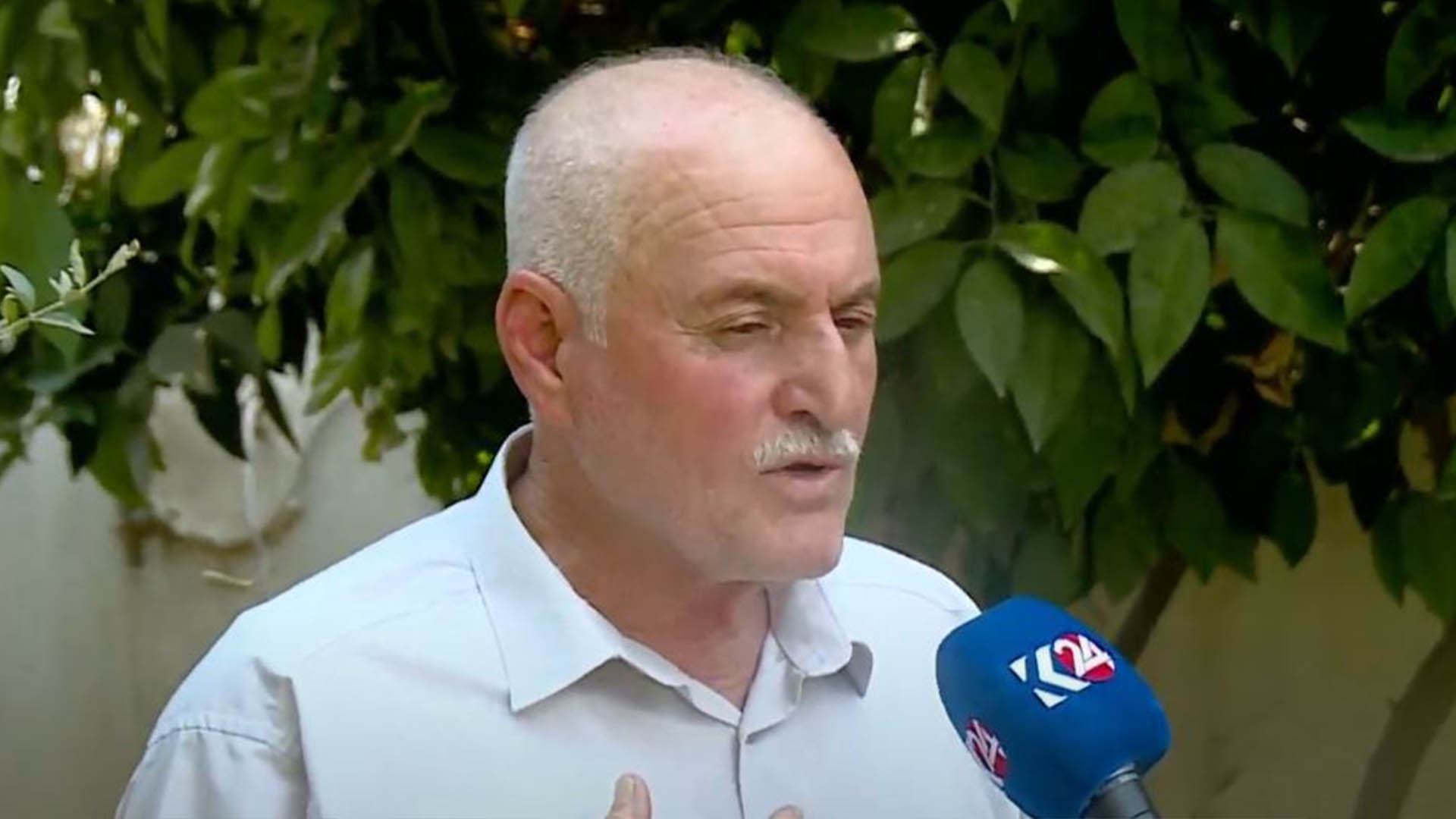Kurdish Farmer Punished for Building on His Own Land: A Kirkuk Tale of Injustice
A Kirkuk court sentenced a Kurdish farmer to a 6-month suspended term in a land dispute with the Iraqi army. He calls it a 'Baath-era' decision, part of a pattern of military pressure on Kurdish landowners in Kurdistani territories outside the KRG's administrative control.

ERBIL (Kurdistan24) – A Kirkuk court has sentenced a Kurdish citizen to six months in prison in a contentious land dispute after the Iraqi army filed a complaint against him for building a house on property he asserts is his ancestral land, a case he describes as the direct implementation of "Baath-era decisions" and which highlights a persistent pattern of military pressure against Kurdish landowners in the disputed territory.
According to information from Soran Kamaran, a Kurdistan24 correspondent in Kirkuk, the case involves Ibrahim Tobzawayi, a resident of Tobzawa village. After Tobzawayi built a house on his own land, the Iraqi army came to his property, evicted him, and then filed a legal complaint. The army claims the land belongs to them and is demanding that he demolish the house and pay compensation.
Speaking directly to Kurdistan24, Ibrahim Tobzawayi detailed his legal ordeal. "A while ago, the 11th Division of the Iraqi army filed a complaint against me. I was released on bail for three million dinars," he said. "Today, the police brought me another notification... The judge asked me why I had encroached on this land. I told him I had not encroached and that it is my grandfather's land. He said, 'No, this is Ministry of Defense land, and you have encroached on state property.' Therefore, they issued a six-month prison sentence for me, but it is not being enforced [is a suspended sentence] because I have no prior criminal record."
The suspended sentence comes with the condition that if he gets into any trouble, the court can imprison him for three years. "I call on the federal government and the Kurdistan Regional Government to come to the aid of the people of Tobzawa," he pleaded.
The situation in Tobzawa is not isolated. The report indicates that 20 other farmers in the area are also being told they must vacate their 300 donums of land. Tobzawayi framed the actions as a continuation of historical injustices: "Only the faces have changed; otherwise, all the decisions are from the Baath era. They are implementing the Baathist decisions word for word, without any fear or hesitation."
This incident is the latest in a series of documented confrontations between the Iraqi military and Kurdish residents in Kirkuk province since federal forces took control in Oct. 2017.
In June 2025, Kurdistan24 reported that the Iraqi Army had ordered a Kurdish family in Hasari village to vacate their home, to which they held the legal deed, for the construction of a military base. At the time, a resident told Kurdistan24, "Even Saddam Hussein didn’t go this far... They’re driving us out by force."
Military pressure has also been economic. In May, Kurdish farmers reported that military units were preventing them from working their land, even after the Iraqi government had included their farms in a wheat subsidy program. Farmers stated they were being blocked from harvesting their crops by military interference and threats from resettled Arab populations backed by the army.
However, Kurdish residents have also shown powerful resilience. A legal dispute in Shenagha village in May ended in a landmark victory when a court ruled in favor of three Kurdish farmers, affirming their ownership of land claimed by Arab settlers. That case followed a tense standoff in February, where an Iraqi soldier was filmed trying to drag a farmer off his tractor. The farmer’s defiant cry, “Even if I die, I will not get down from the tractor!” became a symbol of Kurdish resistance.
The February incident in Shenagha drew swift condemnation from the highest levels of the Kurdistan Region. President Masoud Barzani stated the scenes were reminiscent of "the Anfal, chemical attacks, and genocide," while Prime Minister Masrour Barzani’s office called the army’s actions "unconstitutional." The military’s actions at the time also led to a temporary reporting ban on Kurdistan24, which had provided extensive coverage of the farmers' protests.
Kurdistan24's correspondent Soran Kamaran contributed to this report.